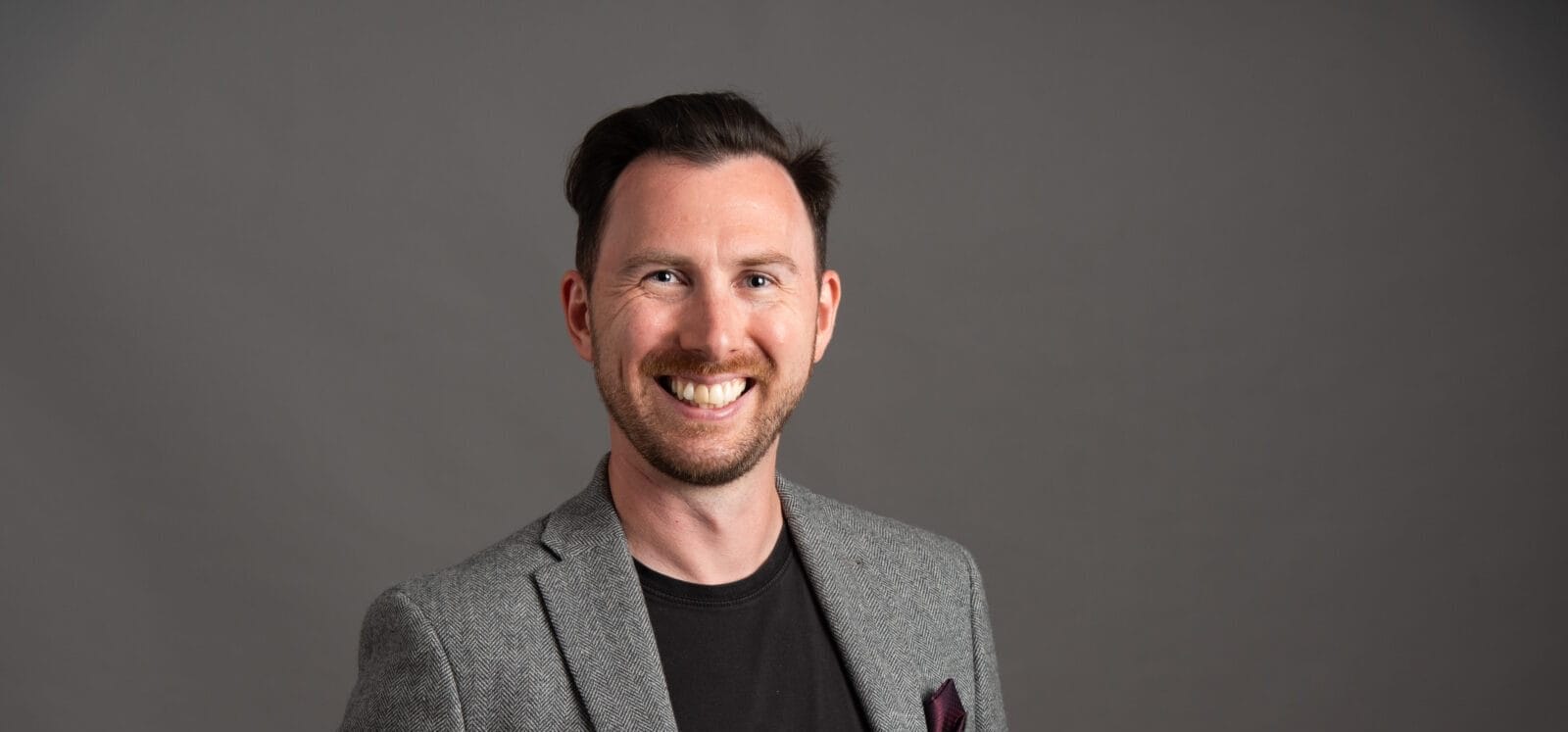In high-performance professions like financial planning, stress rarely shows up as drama or breakdowns—it hides in plain sight. In this compelling blog for IFA Magazine, former adviser, James Woodfall, shares a deeply personal account of how unchecked pressure, disguised as professionalism, nearly cost him his health—and why the industry must change its culture around stress before it’s too late.
When people talk about stress, they often think of visible signs such as burnout, emotional outbursts, and physical collapse, like a cartoon image of someone pulling their hair out. But in my experience, stress rarely announces itself, especially in high-performance environments, where the pressure is constant, and the expectation is to carry on regardless.
Over the years, I’ve understood stress not as an occasional spike but as a cumulative experience, a slow, quiet pressure that builds behind the scenes. In my case, it wasn’t until I reached the edge multiple times that I realised how little I truly understood it.
Stress in Disguise
I worked as a financial adviser at a bank early in my career. At 22, I landed a job I’d focused for a couple of years on getting. It involved, on average, five meetings a day in the branch, a couple of home appointments in the evening, long commutes, back-to-back client work, and admin late into the night. For several years, I averaged over four hours of driving daily and worked from early morning until early morning.
I thought it was normal. In hindsight, it wasn’t.
I’d experienced signs of stress like dizziness, irritability, stomach issues and fatigue, but I ignored them as I didn’t link them to stress or work. Looking back, it’s clear that culture played a role. In many parts of financial services, stress is so deeply embedded that it becomes invisible. You don’t question it because everyone around you quietly tolerates the same strain.
When Stress Turns to Crisis
Years later, running my own business, I had an employee who wasn’t performing. No matter what I tried, I couldn’t find a solution. One afternoon, I felt a crushing tightness in my chest. My heart was racing. I felt cold, dizzy, and light-headed. I booked a BUPA medical, thinking there was something more seriously wrong.
It turned out to be a panic attack. I didn’t recognise it at the time.
The doctor asked if I was stressed. I paused and said, “I didn’t think so, not more than usual.” The right answer was yes, but I didn’t recognise the signs. I’d normalised a level of internal pressure that had slowly escalated until my body forced the issue. Maybe I didn’t want to admit it, as that would mean acknowledging weakness. That I couldn’t cope when everyone else could.
That moment was a wake-up call, but not the only one.
What Major Illness Taught Me
Not long after, I sold the business I had built over nearly a decade. While many see business exits as the ultimate goal, letting go, navigating the legal and financial complexity, and moving into the unknown was one of the most emotionally draining experiences I’ve had. And to add to it, during the process, I was diagnosed with two brain aneurysms. Nearly two years ago to the day, I underwent the first of two major neurosurgery procedures. During my recovery, I experienced something I hadn’t in years: no meetings, deadlines, or outward pressure, just time, space, and a long-overdue confrontation with my limits.
In the year between diagnosis and surgery, I was aware that I had something in my head that could kill me: the ticking time bomb. I’d likely had them all my life, but knowing changed everything. I had an experience I’ll never forget. I was exercising at home on the indoor bike, a regular activity for me, and I could feel my pulse throbbing in my head, which isn’t unusual during intense exercise. This time, a thought appeared: “If you don’t slow down, you will die”. That moment taught me something about stress and control: when your body tells you to stop, slow down, and survive, you listen. Or you pay the price.
That period changed everything. It reframed how I see stress, what I tolerate, and where I place value. Now, any problem that isn’t life or death truly feels manageable. And any environment that demands constant performance without space for well-being isn’t acceptable to me.
The Quiet Signs of Stress
People often assume stress looks like panic or burnout. But most high performers show it differently. For me, stress looks like:
• Silence
• Distraction
• Long stares and mental spirals
• A calm exterior that masks internal overdrive
A colleague once said I am “like a duck on water”, smooth and composed above the surface, legs frantically kicking underneath. My wife is the only one who can reliably spot the signs. If you ask her, when I’m quiet, distracted, and staring into the distance, I’m not okay; I’m repeatedly working through something in my head.
I’ve also seen this in others: a colleague in his 60s who felt “off” and days later experienced a panic attack at work, and a younger teammate who withdrew into himself without warning. Stress doesn’t discriminate. It doesn’t always look loud. Sometimes, it seems like distance, silence and overthinking, which could be mistaken for commitment, professionalism and success.
I’ve carried the weight of running a business, fearing how others perceive me and feeling responsible for everyone else’s mistakes. If we don’t recognise and deal with stress, it grows quiet roots in our nervous systems. Research shows that chronic stress even accelerates cellular ageing. When the body is in a prolonged fight-flight state, it diverts resources from long-term maintenance, like cell repair and regeneration, focusing on immediate survival.
What Helps (and What Doesn’t)
Over time, I’ve developed a toolkit for managing stress in ways that work for me. Some of these might sound familiar, but they work not because they’re trendy but because they’re intentional:
• Physical movement: especially strength training and intense cardio
• Cold showers: the last 60 seconds, voluntarily suffering early in the day provides a good benchmark for comparison
• Writing problems down, especially those without immediate solutions
• Talking out loud: with my wife, close friends, or through reflective writing
• Setting boundaries: no work on weekends, evenings, or holidays; no exceptions
• Nutrition and sleep: no junk food, 7-8 hours
Stress management requires early awareness of the signs in yourself and habits and routines to help prevent things from escalating. Don’t pretend pressure doesn’t exist or that you are immune to its effects; we all have a limit, and we often don’t know where it is until it is breached.
Culture
I saw a recently advertised role for trainee advisers that placed unrealistic expectations on working hours and output. It reminded me of where I started and what nearly broke me.
We don’t need fewer people entering financial services. We need healthier environments for them to succeed in. More advisers are required; no one should be asked to risk their health for an opportunity. Yes, it’s hard work, but hard shouldn’t mean harmful. Many academies and companies will recruit and train people who want to enter the profession without setting unhealthy expectations. The profession has to evolve, and that means valuing long-term performance over short-term hustle. Stress should never be worn as a badge of honour; it should be understood as a warning sign that you can’t keep the pace up indefinitely. Something will break.
Employers must promote sustainable success, respecting boundaries such as holidays, evenings, and weekends. Workplace cultures should support speaking up, not suffering in silence because “everyone else is doing it”.
Closing Thoughts
Stress nearly cost me my health. It stole time, and I’ll never get it back.
But it also taught me that the cost of not acknowledging stress is far greater than addressing it.
So here’s my encouragement to anyone reading:
• If you are grinding away but feeling foggy, irritable, flat or wired, check in with yourself.
• Don’t wait until your body forces the conversation.
• And if you notice someone unusually quiet, distant, or not quite themselves, check in with them,too.
Because stress doesn’t always look like stress, sometimes, it looks exactly like someone who’s got everything under control.
James Woodfall is a highly experienced former financial planner who, as founder of Raise Your EI, now works with financial services and firms consulting on how they can use emotional intelligence to improve individual and company performance. While studying for his Masters, Woodfall researched the relationship between emotional intelligence and job performance in financial planners.
His book, The Heart of Finance, co-authored with Cliff Lansley,is a practical toolkit enabling finance professionals to develop the Emotional Intelligence needed to build effective and profitable client relationships.















